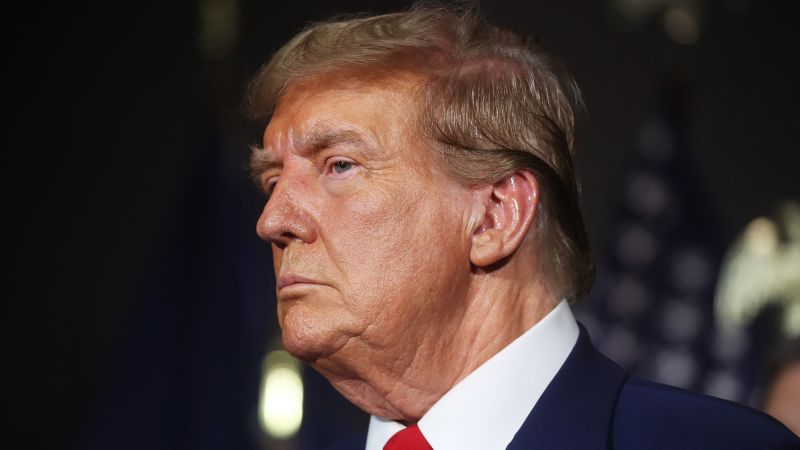In his most recent campaign rallies, former President Donald Trump has once again resorted to his familiar anti-immigration rhetoric that was a hallmark of his 2016 campaign. Promising to build a wall along the southern border and cracking down on illegal immigration, Trump’s speeches have echoed the sentiments that garnered him a loyal base of supporters in his initial bid for the presidency. However, despite the similarities in his messaging, there may be significant differences in the outcome if Trump were to win a second term in 2024.
One major factor that could impact the effectiveness of Trump’s anti-immigration rhetoric in a potential 2024 campaign is the changing demographics of the American electorate. As the country becomes more diverse, with a growing number of Hispanic and other minority voters, Trump’s hardline stance on immigration may not resonate as strongly as it did in 2016. Recent polling data suggests that support for more restrictive immigration policies has waned among Americans, particularly among younger generations who are more open to embracing diverse cultures and welcoming immigrants.
Additionally, the realities of governing may present challenges for Trump if he were to return to the White House. While he was able to make good on some of his campaign promises regarding immigration during his first term, such as implementing a travel ban on several Muslim-majority countries and rolling back protections for undocumented immigrants, the complexities of immigration policy may prove more difficult to navigate in a second term. With a divided Congress and potential legal challenges to his policies, Trump may find it harder to achieve his goals on immigration if he were to win in 2024.
Furthermore, the global landscape has shifted since Trump’s first term, with new challenges and priorities emerging that may take precedence over immigration in a potential second term. Issues such as climate change, cybersecurity, and global health threats have come to the forefront in recent years, and Trump may find himself forced to address these pressing concerns instead of focusing solely on immigration. Additionally, the ongoing COVID-19 pandemic has highlighted the importance of international cooperation and coordination, making it difficult for Trump to isolate the United States from the rest of the world through restrictive immigration policies.
Another potential obstacle for Trump in a 2024 campaign is the growing backlash against his divisive rhetoric and polarizing leadership style. While he still commands a dedicated base of supporters, there is a growing segment of the electorate that is disillusioned with his leadership and the chaos that characterized his first term in office. Criticism of his handling of the pandemic, racial tensions, and the Capitol insurrection may dampen enthusiasm for a second Trump presidency, particularly among swing voters who may have supported him in 2016 but are now more wary of his rhetoric and policies.
Overall, while Trump’s anti-immigration rhetoric may sound familiar to his supporters from 2016, there are several factors that could impact the outcome if he were to win in 2024. Changing demographics, governing challenges, shifting global priorities, and backlash against his leadership style are all potential obstacles that Trump would need to navigate in a second term. As the political landscape continues to evolve, it remains to be seen whether Trump’s divisive rhetoric on immigration will be as effective in rallying support as it was in his initial bid for the presidency.


